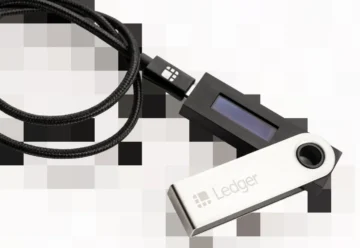SEC Approves Issuance of Spot Bitcoin ETFs in U.S.

The U.S. Securities and Exchange Commission (SEC) officially approved applications from 11 investment companies to issue Bitcoin exchange-traded funds (ETF). Six of them will be available for trading on the Chicago Board Options Exchange (CBOE) on January 11. The crypto market reacted with growth, but there were also opponents of the innovation.
On January 10, the U.S. regulator officially approved the issuance of spot Bitcoin ETFs in the United States. The SEC authorized 11 companies to list and trade exchange-traded funds with BTC as the underlying asset.
The SEC approved Form 19b-4 filings from:
- BlackRock (IBTC);
- ARK 21Shares (ARKB);
- VanEck (HOLD);
- Fidelity (FBTC);
- WisdomTree (BTCW);
- Grayscale (GBTC);
- Franklin Templeton (EZBC);
- Bitwise (BITC);
- Invesco Galaxy (BTCO);
- Valkyrie (VBTC);
- Hashdex (DEFI).
Six of the approved spot Bitcoin ETFs will begin trading on the Chicago Board Options Exchange (CBOE) on January 11. It’s worth noting that exchange representatives recently sent letters to the SEC asking it to speed up the registration process, and notifications about the listing of Bitcoin ETFs on the exchange came out even before the official announcement.
Some BTC trusts are expecting listings on the New York Stock Exchange (NYSE) and The Nasdaq Stock Market LLC (Nasdaq) soon. According to the filings, investment funds will charge various fees for using Bitcoin ETFs. Specifically:
- BlackRock’s fee will be 0.2% until the fund’s AUM reaches $5 billion;
- Bitwise will charge a fee of 0.24%;
- Ark 21Shares’ fees will be 0.25%, but will be completely eliminated when AUM reaches $1 billion, which is expected to happen within six months;
- VanEck’s fee will also be 0.25%;
- Valkyrie will charge 0.4% commission;
- Grayscale has the highest commission at 1.5%.
Gary Gensler, Chair of the SEC, said the approval of spot Bitcoin ETFs was in no way related to the agency’s stance on digital assets and Bitcoin. He said the commission was forced to approve the investment product applications after losing the court case against Grayscale. However, the regulator still considers digital currencies to be high-risk assets and BTC to be speculative. Gensler said the agency would closely monitor all crypto-based products, including spot Bitcoin ETFs.
The SEC’s ruling was also criticized by some of its members and economists. Caroline Crenshaw, one of the SEC members who voted against the approval, called the actions of the agency unreasonable, arguing that such a decision contradicts the principles of investor protection. According to her, the spot crypto market is full of fraud and manipulation because the agency is unable to control it.
Analysts at Better Markets, a non-profit economic organization, called the SEC’s decision useless, saying that BTC can never become a reliable financial product as it’ll always remain in a gray zone without official recognition by the authorities and therefore will be a favorite tool of criminals. Other members of the community also agreed with their opinion. For example, Peter Schiff, Chief Economist at Euro Pacific and Chairman of SchiffGold, who called the regulator’s actions a green light for speculators.
Some members of the crypto community also didn’t take the news with much enthusiasm. Chris Blec, Decentralization Advocate and Crypto Enthusiast, says that the approval of the Bitcoin ETF will negatively affect the blockchain network in the long run.
Despite all the criticism, the SEC’s actions have had a positive impact on the crypto market’s performance. According to CoinGecko, the total market cap of cryptocurrencies grew by 5% over the last day, reaching $1.857 trillion. Bitcoin rose by 1.3% over the last day, jumping above $47,500 at the moment. As of 12:00 (GMT+2), January 11, BTC is $46,262. Its trading volume exceeded $53 billion in the last 24 hours.
The hype around spot Bitcoin ETFs in the United States over the past three months has almost doubled the value of BTC, stimulating the development of bullish trends in the altcoin market as well.











